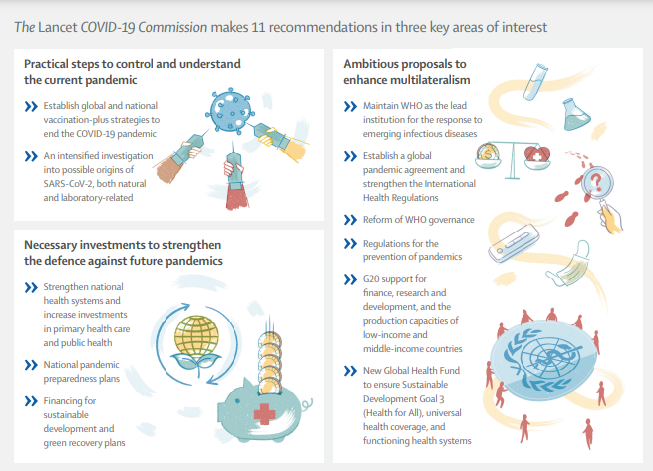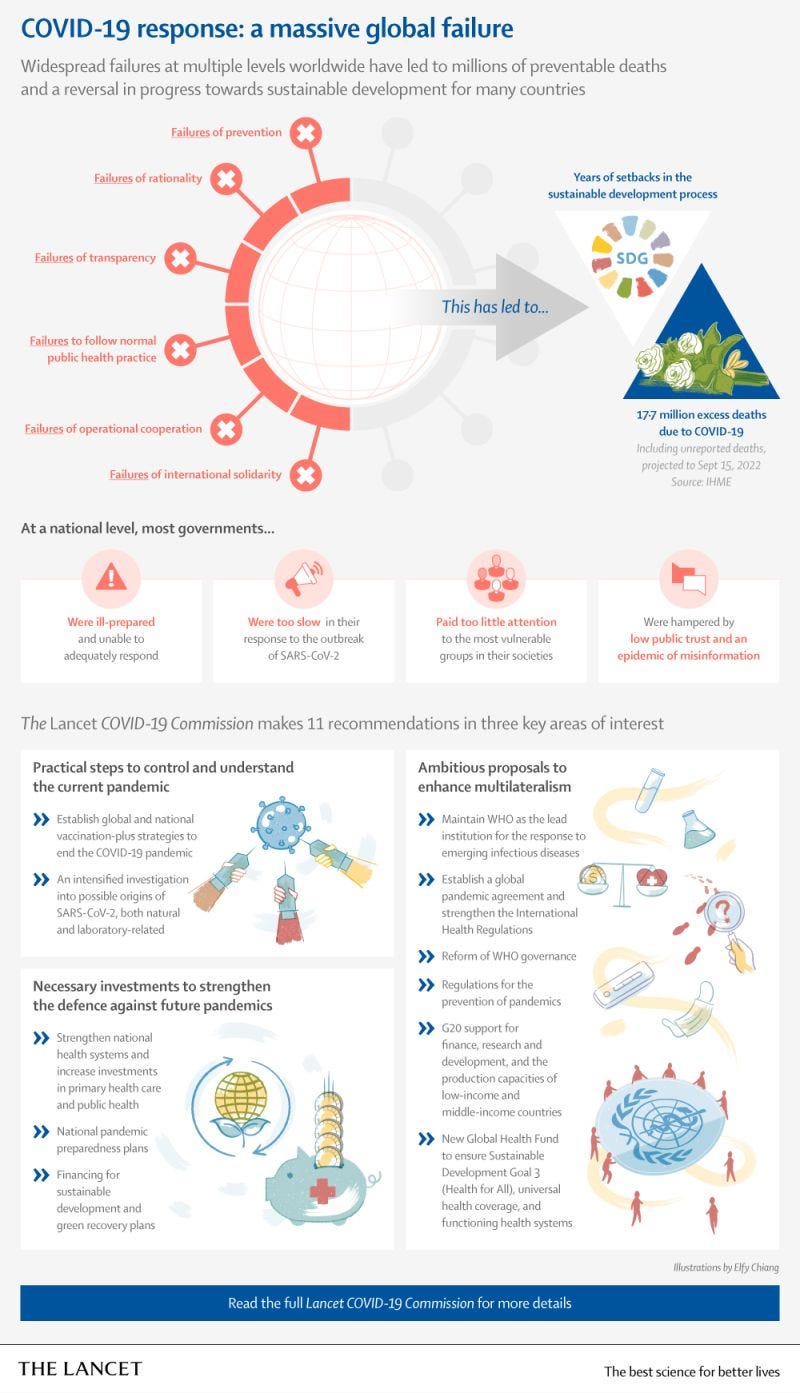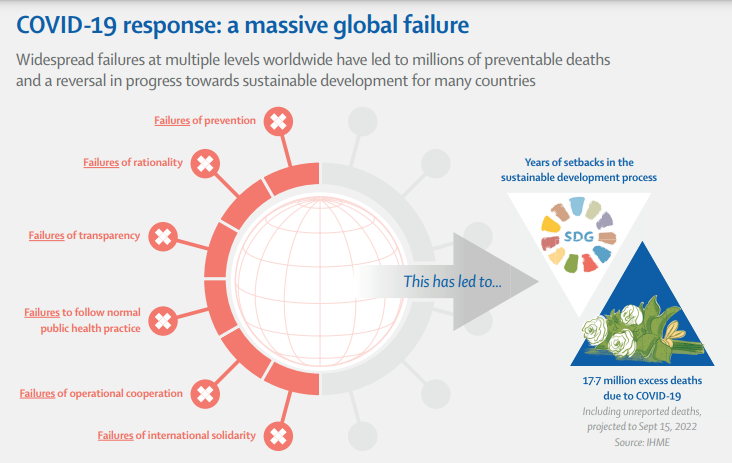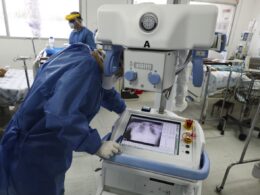This is a republication of the Executive Summary of the publication below.
The Lancet Commission on lessons for the future from the COVID-19 pandemic
The Lancet
The Lancet Commission on lessons for the future from the COVID-19 pandemic
Prof Jeffrey D Sachs, PhD
Prof Salim S Abdool Karim, MBChB PhD
Prof Lara Aknin, PhD
Joseph Allen, DSc
Kirsten Brosbøl, MA
Francesca Colombo, MSc; et al.
September 14, 2022
Site editor:
Joaquim Cardoso MSc.
health transformation — journal
September 15, 2022
Executive summary
As of May 31, 2022, there were 6·9 million reported deaths and 17·2 million estimated deaths from COVID-19, …
… as reported by the Institute for Health Metrics and Evaluation (IHME; throughout the report, we rely on IHME estimates of infections and deaths; note that the IHME gives an estimated range, and we refer to the mean estimate).
This staggering death toll is both a profound tragedy and a massive global failure at multiple levels.
Too many governments have failed to adhere to basic norms of institutional rationality and transparency, too many people-often influenced by misinformation-have disrespected and protested against basic public health precautions, and the world’s major powers have failed to collaborate to control the pandemic.
The multiple failures of international cooperation include
- (1) the lack of timely notification of the initial outbreak of COVID-19;
- (2) costly delays in acknowledging the crucial airborne exposure pathway of SARS-CoV-2, the virus that causes COVID-19, and in implementing appropriate measures at national and global levels to slow the spread of the virus;
- (3) the lack of coordination among countries regarding suppression strategies;
- (4) the failure of governments to examine evidence and adopt best practices for controlling the pandemic and managing economic and social spillovers from other countries;
- (5) the shortfall of global funding for low-income and middle-income countries (LMICs), as classified by the World Bank;
- (6) the failure to ensure adequate global supplies and equitable distribution of key commodities-including protective gear, diagnostics, medicines, medical devices, and vaccines-especially for LMICs;
- (7) the lack of timely, accurate, and systematic data on infections, deaths, viral variants, health system responses, and indirect health consequences;
- (8) the poor enforcement of appropriate levels of biosafety regulations in the lead-up to the pandemic, raising the possibility of a laboratory-related outbreak;
- (9) the failure to combat systematic disinformation; and
- (10) the lack of global and national safety nets to protect populations experiencing vulnerability.

This Commission report aims to contribute to a new era of multilateral cooperation based on strong UN institutions to
- reduce the dangers of COVID-19,
- forestall the next pandemic, and
- enable the world to achieve the agreed goals of sustainable development, human rights, and peace that governments are committed to pursue as members of the UN.

We address this Commission report to the UN member states, the UN agencies and multilateral institutions, and multilateral processes such as the G20 and the G7.
Our aim is to propose guideposts for strengthening the multilateral system to address global emergencies and to achieve sustainable development.
In issuing this report, we commend the excellent work of many important international studies that have preceded our own, most notably those from the Independent Panel for Pandemic Preparedness and Response and the G20 High-Level Independent Panel on Financing the Global Commons on Pandemic Preparedness and Response.
- Section 1 of this Commission report provides a conceptual framework for understanding pandemics.
- Section 2 provides an annotated chronology of the COVID-19 pandemic and thematic findings regarding several issues.
- Section 3 presents our policy recommendations, particularly around multilateral cooperation centred at WHO to address global health crises, and around investments in preparedness for future health crises through strong national health systems and international financing and technology cooperation with the world’s lower-income regions.
Infographic

Originally published at https://www.thelancet.com.












